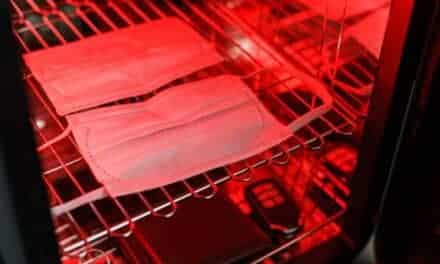The U.S. Centers for Disease Control and Prevention (CDC) warned clinicians and patients late last week about the risk of potentially life-threatening bacterial infections following open-heart surgery due to the possible contamination of a device commonly used during the procedure.
According to a new report highlighted by AAMI, LivaNova PLC’s Stöckert 3T heater-cooler devices, which are used in approximately 60% of the more than 250,000 bypass procedures done in the United States each year, were likely contaminated with Mycobacterium chimaera during manufacturing in Germany.
This type of bacteria, which is common in nature, rarely makes healthy people sick, but the CDC said it can cause serious illness in patients with other health conditions or who have weakened immune systems. Since the first cluster of infections in the United States was identified in a Pennsylvania hospital in July 2015, at least four patients have died. However, the CDC said it is unclear whether M. chimaera infection was a “direct cause of death.”
“It’s important for clinicians and their patients to be aware of this risk so that patients can be evaluated and treated quickly,” says Michael Bell, MD, deputy director of the CDC’s Division of Healthcare Quality Promotion. “Hospitals should check to see which type of heater-coolers are in use, ensure that they’re maintained according to the latest manufacturer instructions, and alert affected patients and the clinicians who care for them.”
Heater-cooler devices use water to help keep a patient’s blood and organs at a specific temperature during bypass surgery. Although this water doesn’t come in contact with the patient, the FDA has said it is possible for contaminated water to enter other parts of the device and release bacteria into the air through the exhaust vent. Such transmission was presented as a case study during the recent health care-associated infection forum hosted by AAMI in collaboration with the CDC, the FDA, the American Hospital Association, and The Joint Commission.
Even so, heater-cooler devices remain an important part of clinical care, and all stakeholders are looking for ways to mitigate the risk of infection. For its part, London-based LivaNova said it was committed to resolving the apparent problem and ensuring patient safety. “We are working with regulators to develop a solution that addresses their concerns and ensures continued clinician access to this important device, which enables lifesaving cardiac surgery,” LivaNova is reported as saying by Reuters.
LivaNova already implemented additional cleaning and disinfection procedures to its production line in September 2014 after its own tests identified M. chimaera contamination, according to the FDA. The FDA “is not aware of M. chimaera patient infections associated with 3T devices that were manufactured after September 2014.”
As a precaution, the FDA has updated its recommendations to health care facilities and staff, advising facilities using these heater-cooler devices to:
- Immediately remove from service any heater-cooler devices, accessories, tubing, and connectors that have tested positive for M. chimaera or have been associated with M. chimaera infections.
- Use new accessories, tubing, and connectors to prevent recontamination when using a different heater-cooler device.
- Direct and channel the heater-cooler’s exhaust away from the patient, e.g., to the operating room exhaust vent.
- Strictly adhere to the cleaning and disinfection instructions provided in the manufacturer’s device labeling.
- Do not use tap water to rinse, fill, refill or top-off water tanks.
- Develop and follow a comprehensive quality control program for maintenance, cleaning, and disinfection of heater-cooler devices.
- Submit a report to the manufacturer and the FDA via MedWatch, if heater-cooler devices are suspected to be associated with patient infections.
For more information regarding this issue, visit AAMI.




